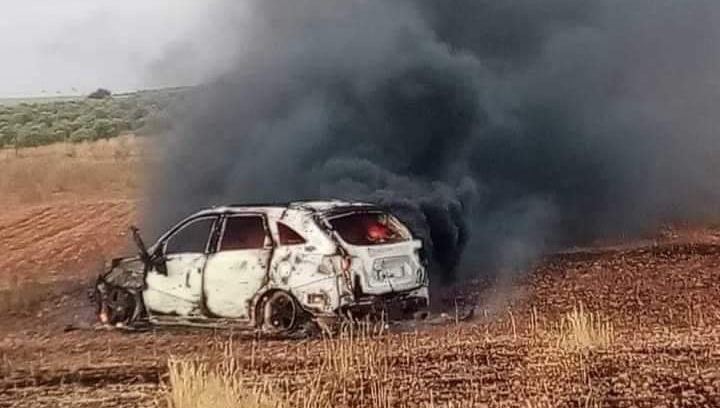3 YPJ fighters killed in Turkish drone strike in Syria’s Manbij
MANBIJ, Syria (North Press) – Three fighters of the Women’s Protection Units (YPJ) were killed on Friday in the city of Manbij in northern Syria by a Turkish drone strike.
Founded in April 2013, the YPJ is an all-female force that is mainly made up of Kurds but includes other ethnic groups in Northeastern Syria. it is part of the Syrian Democratic Forces (SDF).
A Turkish drone targeted a car carrying three fighters of the YPJ on the al-Hatabat road in the south of Manbij, said SDF’s Manbij Military Council (MMC) in a tweet.
The strike led to the killing of the YPJ fighters, the MMC added, without providing further details.
Manbij is the goal of the Turkish drone strikes for a long time as it is targeted every now and then the matter that has created horror among the residents. The region has been attacked by the Turkish-backed armed opposition factions, aka the Syrian National Army (SNA), and the Hayat Tahrir al-Sham (HTS, formerly al-Nusra Front) early in September.
The attacks on Manbij came in tandem with attacks launched by gunmen affiliated to the Syrian government and Iranian-backed militias in Deir ez-Zor.
The attacks caused the displacement of 524 families from villages on contact lines.
On Aug. 27, the SDF launched a military operation called “Security Reinforcement” with the support of the US-led Global Coalition on the eastern bank of the Euphrates River, specifically in Deir ez-Zor, “to eradicate ISIS sleeper cells, pursue criminals responsible for perpetrating injustices against the local population, and to track down smugglers who exploit the populace’s livelihoods.”
On Aug. 30, the SDF announced the dismissal of commander of Deir ez-Zor Military Council, Ahmad al-Khabil, known as Abu Khawla, from duty, for his involvement “in multiple crimes and violations, including communication and coordination with external entities hostile to the revolution, committing criminal offenses and engaging in drug trafficking, mismanaging of the security situation, his negative role in increasing the activities of ISIS cells,” according to the SDF.
The operation led to the eruption of clashes between the SDF and gunmen affiliated with the dismissed leaders and with Nawaf al-Bashir, leader of al-Baggara tribe and a pro-Iranian figure whose groups are active in the western bank of the Euphrates which is under the control of the Syrian government forces and Iranian-backed militias.

